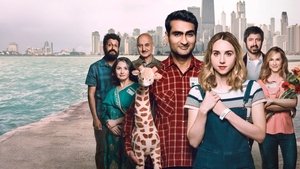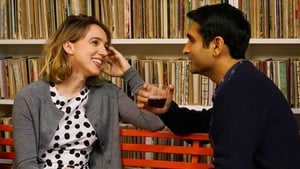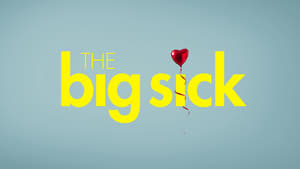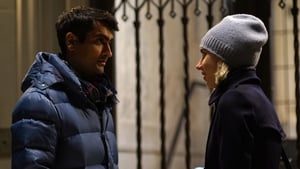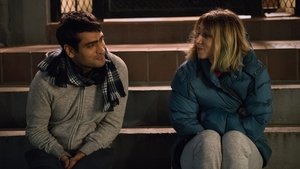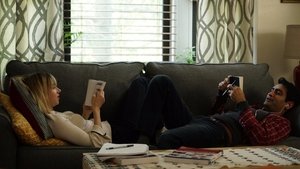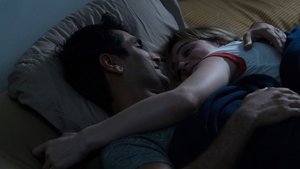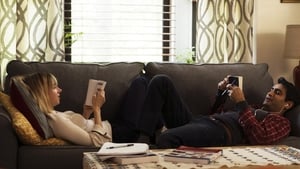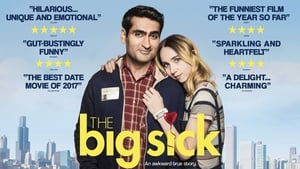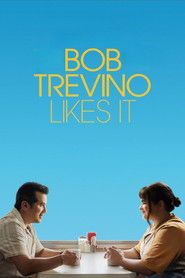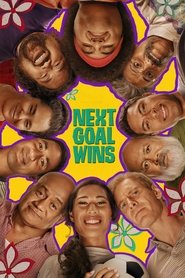Kudos are in order as Judd Apatow has officially transformed an acclaimed filmmaking career into legitimate brand-name recognition. The "Apatow" name has become synonymous with comedy, and it's been plastered all over television screens and billboards as a luring attraction for the general public. His film company's latest production, director Michael Showalter's Sundance Audience Award winner The Big Sick, brings hilarity back to the forefront of independent cinema, reminding us why it's always worthwhile to take a chance on any creative endeavor cloaked with the "Apatow" seal.
Kumail (Silicon Valley's Kumail Nanjiani) is a Pakistani-born amateur comedian living in Chicago. After a performance one night, he meets a free-spirited white woman named Emily (Zoe Kazan) and their instant connection quickly turns into a meaningful relationship. But when the strict Muslim beliefs of Kumail's family force a wedge in their relationship, Emily soon suffers a severe sickness that leaves her comatose, and the trying situation helps give Kumail the strength he needs to confront his loved-ones.
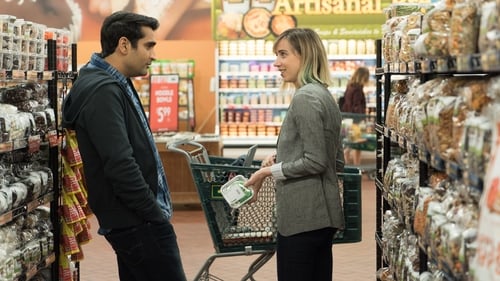
The Big Sick is a poignant and timely examination of the modern Americanized Muslim struggling with their own faith. In an era of division across all walks of life, Michael Showalter's hysterical work addresses cultural and religious differences with nothing but sheer love. The tenderness displayed from scene to scene is effortlessly organic and stems from the real-life inspirations of star Kumail Nanjiani and his wife and co-writer, Emily V. Gordon. Scripted from their own crazy and true love story, taking creative license with only a few minor exceptions, Nanjiani and Gordon pen a wonderful screenplay that does a phenomenal job of setting up perfect comedic conclusions to the film's more personal moments. No matter what direction the story wanders, The Big Sick always circles back to its humor-first foundation. This well-balanced dramedy also benefits from brilliantly crafted characters that come to life through unique chemistry and fearless performances. Nanjiani and Kazan light up the screen together, which allows for a bitterly outstretched third act to feel like nothing more than a mere hiccup in an otherwise exceptional romantic comedy.
-
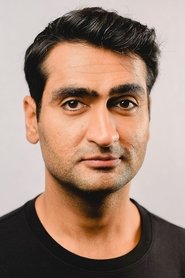 NameKumail NanjianiCharacterKumail Nanjiani
NameKumail NanjianiCharacterKumail Nanjiani -
 NameZoe KazanCharacterEmily Gardner
NameZoe KazanCharacterEmily Gardner -
 NameHolly HunterCharacterBeth Gardner
NameHolly HunterCharacterBeth Gardner -
 NameRay RomanoCharacterTerry Gardner
NameRay RomanoCharacterTerry Gardner -
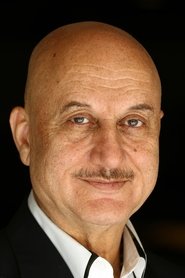 NameAnupam KherCharacterAzmat Nanjiani
NameAnupam KherCharacterAzmat Nanjiani -
 NameZenobia ShroffCharacterSharmeen Nanjiani
NameZenobia ShroffCharacterSharmeen Nanjiani -
 NameAdeel AkhtarCharacterNaveed Nanjiani
NameAdeel AkhtarCharacterNaveed Nanjiani -
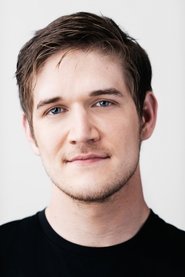 NameBo BurnhamCharacterCJ
NameBo BurnhamCharacterCJ -
 NameAidy BryantCharacterMary
NameAidy BryantCharacterMary -
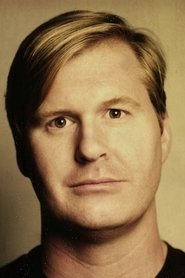 NameKurt BraunohlerCharacterChris
NameKurt BraunohlerCharacterChris -
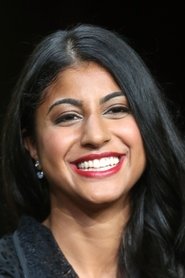 NameVella LovellCharacterKhadija
NameVella LovellCharacterKhadija -
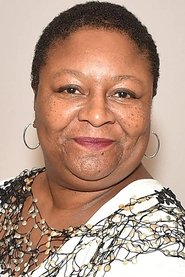 NameMyra Lucretia TaylorCharacterNurse Judy
NameMyra Lucretia TaylorCharacterNurse Judy -
 NameJeremy ShamosCharacterBob Dalavan
NameJeremy ShamosCharacterBob Dalavan -
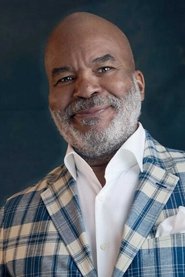 NameDavid Alan GrierCharacterAndy Dodd
NameDavid Alan GrierCharacterAndy Dodd -
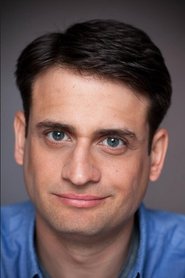 NameEd HerbstmanCharacterSam Highsmith
NameEd HerbstmanCharacterSam Highsmith -
 NameShenaz TreasuryCharacterFatima Nanjiani
NameShenaz TreasuryCharacterFatima Nanjiani -
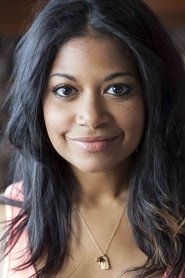 NameRebecca Naomi JonesCharacterJesse
NameRebecca Naomi JonesCharacterJesse -
 NameKuhoo VermaCharacterZubeida
NameKuhoo VermaCharacterZubeida -
 NameMitra JouhariCharacterYazmin
NameMitra JouhariCharacterYazmin -
 NameCeleste AriasCharacterDenise
NameCeleste AriasCharacterDenise -
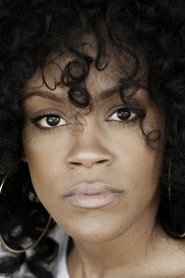 NameShana SolomonCharacterNurse Bette
NameShana SolomonCharacterNurse Bette -
 NameJeff BlumenkrantzCharacterDr. Wright
NameJeff BlumenkrantzCharacterDr. Wright -
 NameLinda EmondCharacterDr. Cunningham
NameLinda EmondCharacterDr. Cunningham -
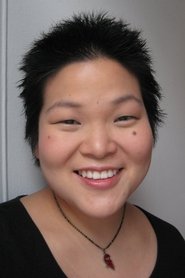 NameHolly ChouCharacterDr. Whelan
NameHolly ChouCharacterDr. Whelan -
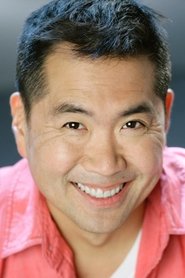 NameAndrew PangCharacterDr. Spellman
NameAndrew PangCharacterDr. Spellman -
 NameAlison CimmetCharacterDr. Platt
NameAlison CimmetCharacterDr. Platt -
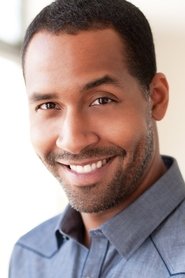 NameLawrence BallardCharacterDr. Lewin
NameLawrence BallardCharacterDr. Lewin -
 NameShunori RamanathanCharacterSumera
NameShunori RamanathanCharacterSumera -
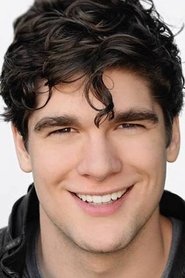 NameSpencer HouseCharacterRacist Heckler
NameSpencer HouseCharacterRacist Heckler -
 NameSusham BediCharacterTina (Khadija's Mother)
NameSusham BediCharacterTina (Khadija's Mother) -
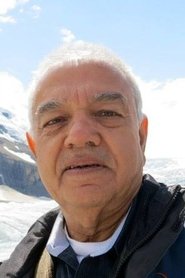 NameRahul BediCharacterFarhan (Khadija's Father)
NameRahul BediCharacterFarhan (Khadija's Father) -
 NameMatthew CardaropleCharacterFast Food Cashier
NameMatthew CardaropleCharacterFast Food Cashier -
 NameMyra TurleyCharacterWaiting Room Person 1
NameMyra TurleyCharacterWaiting Room Person 1 -
 NameWilliam StephensonCharacterWaiting Room Person 2
NameWilliam StephensonCharacterWaiting Room Person 2 -
 NameMarilyn TorresCharacterWaiting Room Person 3
NameMarilyn TorresCharacterWaiting Room Person 3 -
 NameKerry FlanaganCharacterWaiting Room Person 4
NameKerry FlanaganCharacterWaiting Room Person 4 -
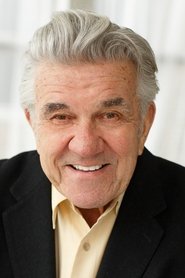 NameJack O'ConnellCharacterWaiting Room Person 5
NameJack O'ConnellCharacterWaiting Room Person 5 -
 NameCharles GouldCharacterWaiting Room Person 6
NameCharles GouldCharacterWaiting Room Person 6 -
 NameIsabel ShillCharacterParty Goer 1
NameIsabel ShillCharacterParty Goer 1 -
 NameLauren PattenCharacterParty Goer 2
NameLauren PattenCharacterParty Goer 2 -
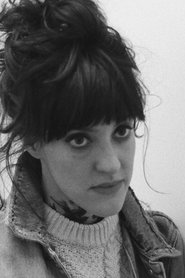 NameKeilly McQuailCharacterParty Goer 3
NameKeilly McQuailCharacterParty Goer 3 -
 NameZach CherryCharacterParty Goer 4
NameZach CherryCharacterParty Goer 4 -
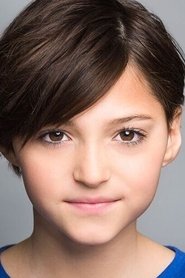 NameSophia MullerCharacterChrissy (uncredited)
NameSophia MullerCharacterChrissy (uncredited) -
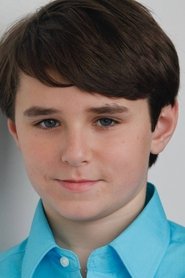 NameJack CorriganCharacterRestaurant Boy (uncredited)
NameJack CorriganCharacterRestaurant Boy (uncredited)
-
 NameMichael ShowalterJobDirector
NameMichael ShowalterJobDirector -
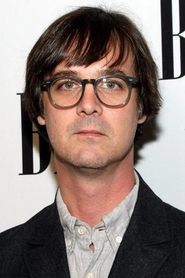 NameMichael AndrewsJobOriginal Music Composer
NameMichael AndrewsJobOriginal Music Composer -
 NameEmily V. GordonJobWriter
NameEmily V. GordonJobWriter -
 NameKumail NanjianiJobWriter
NameKumail NanjianiJobWriter -
 NameJoe SchultzJobDriver
NameJoe SchultzJobDriver -
 NameTara A. PaulJobSound Re-Recording Mixer
NameTara A. PaulJobSound Re-Recording Mixer -
 NameJudd ApatowJobProducer
NameJudd ApatowJobProducer -
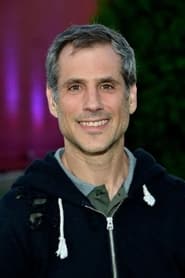 NameBarry MendelJobProducer
NameBarry MendelJobProducer -
 NameSarah Mae BurtonJobCostume Designer
NameSarah Mae BurtonJobCostume Designer -
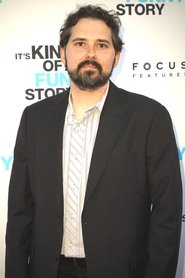 NameJeremy Kipp WalkerJobExecutive Producer
NameJeremy Kipp WalkerJobExecutive Producer -
 NameBrandon Tonner-ConnollyJobProduction Design
NameBrandon Tonner-ConnollyJobProduction Design -
 NameRobert NassauJobEditor
NameRobert NassauJobEditor -
 NameBrian BurgoyneJobDirector of Photography
NameBrian BurgoyneJobDirector of Photography -
 NameLauren J. BrownJobProperty Master
NameLauren J. BrownJobProperty Master -
 NameWilliam SmithJobSet Dresser
NameWilliam SmithJobSet Dresser -
 NameGayle KellerJobCasting
NameGayle KellerJobCasting -
 NameJoe RudgeJobMusic Supervisor
NameJoe RudgeJobMusic Supervisor -
 NameAmanda GlazeJobCo-Producer
NameAmanda GlazeJobCo-Producer -
 NameGlen BasnerJobExecutive Producer
NameGlen BasnerJobExecutive Producer -
 NameBen BrowningJobExecutive Producer
NameBen BrowningJobExecutive Producer -
 NameKumail NanjianiJobExecutive Producer
NameKumail NanjianiJobExecutive Producer -
 NameEmily V. GordonJobExecutive Producer
NameEmily V. GordonJobExecutive Producer -
 NameJeremy Kipp WalkerJobUnit Production Manager
NameJeremy Kipp WalkerJobUnit Production Manager -
 NameAdam J. BernardJobSecond Assistant Director
NameAdam J. BernardJobSecond Assistant Director -
 NameJeremy SampleJobStunt Coordinator
NameJeremy SampleJobStunt Coordinator -
 NameAnnie TanJobProduction Supervisor
NameAnnie TanJobProduction Supervisor -
 NameMariana HellmundJobScript Supervisor
NameMariana HellmundJobScript Supervisor -
 NameYousheng TangJobSteadicam Operator
NameYousheng TangJobSteadicam Operator -
 NameAlec JarnaginJobSteadicam Operator
NameAlec JarnaginJobSteadicam Operator -
 NameNicole RivelliJobStill Photographer
NameNicole RivelliJobStill Photographer -
 NameBrent PoleskiJobKey Grip
NameBrent PoleskiJobKey Grip -
 NameLarhn Laurens DavittJobDolly Grip
NameLarhn Laurens DavittJobDolly Grip -
 NameNuno OliveiraJobGrip
NameNuno OliveiraJobGrip -
 NameCliff AlphonseJobGrip
NameCliff AlphonseJobGrip -
 NameParissh McCleanJobGrip
NameParissh McCleanJobGrip -
 NameAnthony F. GamielloJobGrip
NameAnthony F. GamielloJobGrip -
 NameSally FosterJobGrip
NameSally FosterJobGrip -
 NameElizabeth RodrickJobSet Decoration
NameElizabeth RodrickJobSet Decoration -
 NameJack Mortellaro Jr.JobLeadman
NameJack Mortellaro Jr.JobLeadman -
 NameBill C. BishopJobLeadman
NameBill C. BishopJobLeadman -
 NameAnthony TaratunioJobSet Dresser
NameAnthony TaratunioJobSet Dresser -
 NameMaeve KellyJobAssistant Costume Designer
NameMaeve KellyJobAssistant Costume Designer -
 NameChristina NickasJobWardrobe Supervisor
NameChristina NickasJobWardrobe Supervisor -
 NameMegan SandersJobWardrobe Supervisor
NameMegan SandersJobWardrobe Supervisor -
 NameLauren ColbertJobCostume Coordinator
NameLauren ColbertJobCostume Coordinator -
 NameJason VelezJobGaffer
NameJason VelezJobGaffer -
 NameFrancesco PinnaJobBest Boy Electric
NameFrancesco PinnaJobBest Boy Electric -
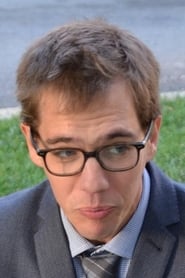 NameAndy EklundJobArt Direction
NameAndy EklundJobArt Direction -
 NameShane AitchisonJobArt Department Coordinator
NameShane AitchisonJobArt Department Coordinator -
 NameRichard HebrankJobConstruction Coordinator
NameRichard HebrankJobConstruction Coordinator -
 NameAnthony S. CalypsoJobAssistant Property Master
NameAnthony S. CalypsoJobAssistant Property Master -
 NameJeff BrinkJobSpecial Effects Coordinator
NameJeff BrinkJobSpecial Effects Coordinator -
 NameLeo WonJobMakeup Department Head
NameLeo WonJobMakeup Department Head -
 NameKirsten SylvesterJobKey Makeup Artist
NameKirsten SylvesterJobKey Makeup Artist -
 NameRaquel VivveJobMakeup Artist
NameRaquel VivveJobMakeup Artist -
 NameCynthia ChouJobProduction Coordinator
NameCynthia ChouJobProduction Coordinator -
 NameNicki SlackJobAssistant Production Coordinator
NameNicki SlackJobAssistant Production Coordinator -
 NameJocelyn MagsumbolJobProduction Office Assistant
NameJocelyn MagsumbolJobProduction Office Assistant -
 NameRoberto González ArévaloJobProduction Office Assistant
NameRoberto González ArévaloJobProduction Office Assistant -
 NameJillian StrickerJobLocation Manager
NameJillian StrickerJobLocation Manager -
 NameJerry 'Niru' CoxJobBoom Operator
NameJerry 'Niru' CoxJobBoom Operator -
 NamePaul ReedJobUtility Sound
NamePaul ReedJobUtility Sound -
 NameJunior Cyrus BaronJobUtility Sound
NameJunior Cyrus BaronJobUtility Sound -
 NameTonia CicconeJobHair Department Head
NameTonia CicconeJobHair Department Head -
 NameToni Roman-GrimmJobKey Hair Stylist
NameToni Roman-GrimmJobKey Hair Stylist -
 NameJosh GerickeJobHairstylist
NameJosh GerickeJobHairstylist -
 NameBert Reo AndersonJobHairstylist
NameBert Reo AndersonJobHairstylist -
 NameJohnny HollandJobProduction Accountant
NameJohnny HollandJobProduction Accountant -
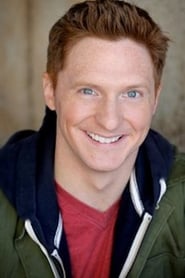 NameBrad GageJobActor's Assistant
NameBrad GageJobActor's Assistant -
 NameAdrienne EnderleJobSet Production Assistant
NameAdrienne EnderleJobSet Production Assistant -
 NameMatthew McCoubryJobSet Production Assistant
NameMatthew McCoubryJobSet Production Assistant -
 NameMatt MerksamerJobSet Production Assistant
NameMatt MerksamerJobSet Production Assistant -
 NameAnthony PennachioJobSet Production Assistant
NameAnthony PennachioJobSet Production Assistant -
 NameJon SantosJobSet Production Assistant
NameJon SantosJobSet Production Assistant -
 NameAlex LiljaJobSet Production Assistant
NameAlex LiljaJobSet Production Assistant -
 NameAlex SpearJobSet Production Assistant
NameAlex SpearJobSet Production Assistant -
 NameJasmine BrotzmanJobSet Production Assistant
NameJasmine BrotzmanJobSet Production Assistant -
 NameLiz WagnerJobSet Production Assistant
NameLiz WagnerJobSet Production Assistant -
 NameRobert MaasinJobSet Production Assistant
NameRobert MaasinJobSet Production Assistant -
 NameYadeed MellmanJobSet Production Assistant
NameYadeed MellmanJobSet Production Assistant -
 NameAva MyintJobSet Production Intern
NameAva MyintJobSet Production Intern -
 NameLauren MecklebergJobSet Production Intern
NameLauren MecklebergJobSet Production Intern -
 NameIsaac GottererJobSet Production Intern
NameIsaac GottererJobSet Production Intern -
 NameElla GibneyJobSet Production Intern
NameElla GibneyJobSet Production Intern -
 NameAllison KirschnerJobCasting Associate
NameAllison KirschnerJobCasting Associate -
 NameNicole P. HearonJobCasting Associate
NameNicole P. HearonJobCasting Associate -
 NameAaron SchoonoverJobCasting Associate
NameAaron SchoonoverJobCasting Associate -
 NameGeorge HoltzerJobTransportation Captain
NameGeorge HoltzerJobTransportation Captain -
 NamePeter LinkJobDriver
NamePeter LinkJobDriver -
 NameBob Papini Jr.JobDriver
NameBob Papini Jr.JobDriver -
 NameDamon TragniJobDriver
NameDamon TragniJobDriver -
 NamePJ FordJobDriver
NamePJ FordJobDriver -
 NameRyan MurphyJobDriver
NameRyan MurphyJobDriver -
 NameEd ElliotJobDriver
NameEd ElliotJobDriver -
 NameMike DevereauxJobDriver
NameMike DevereauxJobDriver -
 NameMike McElroyJobDriver
NameMike McElroyJobDriver -
 NameMike MurphyJobDriver
NameMike MurphyJobDriver -
 NameMichael JackmanJobPost Production Supervisor
NameMichael JackmanJobPost Production Supervisor -
 NameLuis CuevasJobAssistant Editor
NameLuis CuevasJobAssistant Editor -
 NameLeah TuscanoJobAssistant Editor
NameLeah TuscanoJobAssistant Editor -
 NameTom PaulJobSupervising Sound Editor
NameTom PaulJobSupervising Sound Editor -
 NameBobby MackstonJobSound Editor
NameBobby MackstonJobSound Editor -
 NameDan EdelsteinJobADR Editor
NameDan EdelsteinJobADR Editor -
 NameSean GarnhartJobSound Effects Editor
NameSean GarnhartJobSound Effects Editor -
 NamePam DeMetruis-ThomasJobFoley Editor
NamePam DeMetruis-ThomasJobFoley Editor -
 NameTom PaulJobSound Re-Recording Mixer
NameTom PaulJobSound Re-Recording Mixer -
 NameMark LindenJobSound Re-Recording Mixer
NameMark LindenJobSound Re-Recording Mixer -
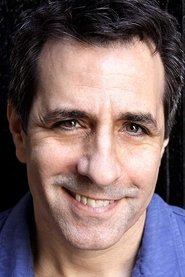 NameDann FinkJobADR Voice Casting
NameDann FinkJobADR Voice Casting -
 NameBruce WinantJobADR Voice Casting
NameBruce WinantJobADR Voice Casting -
 NameAzniv KorkejianJobMusic Editor
NameAzniv KorkejianJobMusic Editor -
 NameLucien HarriotJobVFX Supervisor
NameLucien HarriotJobVFX Supervisor -
 NameFangge ChenJobDigital Compositors
NameFangge ChenJobDigital Compositors -
 NameConstance ConradJobDigital Compositors
NameConstance ConradJobDigital Compositors -
 NameSaffia RahimtoolaJobDigital Compositors
NameSaffia RahimtoolaJobDigital Compositors -
 NameMelissa KivellJobVFX Production Coordinator
NameMelissa KivellJobVFX Production Coordinator -
 NameAdam KershJobPublicist
NameAdam KershJobPublicist -
 NameAaron BeckerJobTitle Designer
NameAaron BeckerJobTitle Designer -
 NameBill OrricoJobDialogue Editor
NameBill OrricoJobDialogue Editor -
 NameCharles R. HuntJobProduction Sound Mixer
NameCharles R. HuntJobProduction Sound Mixer -
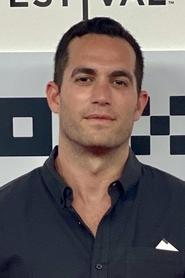 NameZach WolfJobAssistant Editor
NameZach WolfJobAssistant Editor -
 NameMichael ElliottJobTransportation Co-Captain
NameMichael ElliottJobTransportation Co-Captain -
 NameDave KlocJobThanks
NameDave KlocJobThanks -
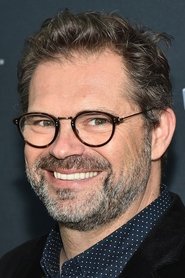 NameDana GouldJobThanks
NameDana GouldJobThanks -
 NameNicole EckenroadJobThanks
NameNicole EckenroadJobThanks -
 NameMoshe KasherJobThanks
NameMoshe KasherJobThanks -
 NameAlec BergJobThanks
NameAlec BergJobThanks -
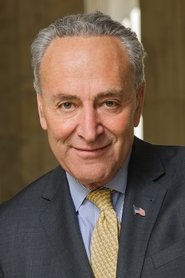 NameChuck SchumerJobThanks
NameChuck SchumerJobThanks -
 NameChristine NangleJobThanks
NameChristine NangleJobThanks -
 NameLisa GoldbergJobThanks
NameLisa GoldbergJobThanks -
 NameDominic DierkesJobThanks
NameDominic DierkesJobThanks -
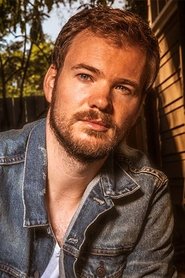 NameSean ClementsJobThanks
NameSean ClementsJobThanks -
 NameCasey ShawJobThanks
NameCasey ShawJobThanks -
 NameKrister C. JohnsonJobThanks
NameKrister C. JohnsonJobThanks -
 NameJared LoganJobThanks
NameJared LoganJobThanks -
 NamePete HolmesJobThanks
NamePete HolmesJobThanks -
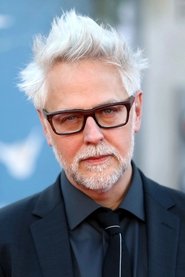 NameJames GunnJobThanks
NameJames GunnJobThanks -
 NameEmily HellerJobThanks
NameEmily HellerJobThanks -
 NameGlenn D. FeigJobLegal Services
NameGlenn D. FeigJobLegal Services -
 NameNoor AhmedJobLegal Services
NameNoor AhmedJobLegal Services -
 NameJoshua ShabaniJobLegal Services
NameJoshua ShabaniJobLegal Services -
 NameBrady SmootJobLegal Services
NameBrady SmootJobLegal Services -
 NameDr. Jonathan FosterJobMedical Consultant
NameDr. Jonathan FosterJobMedical Consultant -
 NameRachel SchneiderJobPost Production Accountant
NameRachel SchneiderJobPost Production Accountant -
 NameNeal JonasJobVisual Effects
NameNeal JonasJobVisual Effects -
 NameTodd BurkeJobScoring Mixer
NameTodd BurkeJobScoring Mixer -
 NameSebastian HenshawJobFoley Artist
NameSebastian HenshawJobFoley Artist -
 NameCarl ShillitoJobFoley Mixer
NameCarl ShillitoJobFoley Mixer -
 NameKeith GordonJobBest Boy Grip
NameKeith GordonJobBest Boy Grip -
 NameConnor DwyerJobBest Boy Grip
NameConnor DwyerJobBest Boy Grip -
 NameChris KeenanJobGrip
NameChris KeenanJobGrip -
 NameScott BowersJobSecond Second Assistant Director
NameScott BowersJobSecond Second Assistant Director -
 NameAri IsslerJob"A" Camera Operator
NameAri IsslerJob"A" Camera Operator -
 NameAndrew JuhlJobFirst Assistant "A" Camera
NameAndrew JuhlJobFirst Assistant "A" Camera -
 NameBlake JohnsonJobSecond Assistant "A" Camera
NameBlake JohnsonJobSecond Assistant "A" Camera -
 NameFrank LarsonJob"B" Camera Operator
NameFrank LarsonJob"B" Camera Operator -
 NamePierrot ColonnaJob"B" Camera Operator
NamePierrot ColonnaJob"B" Camera Operator -
 NameHtat HtutJobFirst Assistant "B" Camera
NameHtat HtutJobFirst Assistant "B" Camera -
 NameFillip PensonJobFirst Assistant "B" Camera
NameFillip PensonJobFirst Assistant "B" Camera -
 NameCasey David JohnsonJobSecond Assistant "B" Camera
NameCasey David JohnsonJobSecond Assistant "B" Camera -
 NameAshton GreenJobSecond Assistant "B" Camera
NameAshton GreenJobSecond Assistant "B" Camera -
 NameMatt HardingJobLoader
NameMatt HardingJobLoader -
 NameNicole CapognaJobCostumer
NameNicole CapognaJobCostumer -
 NameEva Marie LopezJobCostumer
NameEva Marie LopezJobCostumer -
 NameIsmyrne GeffrardJobCostumer
NameIsmyrne GeffrardJobCostumer -
 NameEmber RothJobCostumer
NameEmber RothJobCostumer -
 NameScott GriswoldJobSet Dressing Buyer
NameScott GriswoldJobSet Dressing Buyer -
 NameGregor TelferJobOn Set Dresser
NameGregor TelferJobOn Set Dresser -
 NameAndrew SchoentubeJobOn Set Dresser
NameAndrew SchoentubeJobOn Set Dresser -
 NamePaul ReedJobUtility Sound
NamePaul ReedJobUtility Sound -
 NameIsabelle DecauwertJobAdditional Hairstylist
NameIsabelle DecauwertJobAdditional Hairstylist -
 NameBrittany SugarmanJobFirst Assistant Accountant
NameBrittany SugarmanJobFirst Assistant Accountant -
 NameGabriel GonzalezJobAssistant Location Manager
NameGabriel GonzalezJobAssistant Location Manager -
 NameMichael L. MizrahiJobAssistant Location Manager
NameMichael L. MizrahiJobAssistant Location Manager -
 NameAdam WilliamsJobLocation Assistant
NameAdam WilliamsJobLocation Assistant -
 NameSharmain PerryJobLocation Assistant
NameSharmain PerryJobLocation Assistant -
 NameAlcy SivyerJobAssistant Craft Service
NameAlcy SivyerJobAssistant Craft Service -
 NameWendy CohenJobClearances Consultant
NameWendy CohenJobClearances Consultant -
 NameStanley D. BurnsJobMedical Consultant
NameStanley D. BurnsJobMedical Consultant -
 NameLiz BurnsJobMedical Consultant
NameLiz BurnsJobMedical Consultant -
 NameFrance IannJobMedical Consultant
NameFrance IannJobMedical Consultant -
 NameSusan MillardJobMedical Consultant
NameSusan MillardJobMedical Consultant -
 NameCarol A. ComptonJobScript Researcher
NameCarol A. ComptonJobScript Researcher -
 NameUmberto RameroJobCatering
NameUmberto RameroJobCatering -
 NameRich ElmilerJobCatering
NameRich ElmilerJobCatering -
 NameBrian HavensJobCatering
NameBrian HavensJobCatering -
 NameAlvero CastilloJobCatering
NameAlvero CastilloJobCatering -
 NameRich AlfieriJobCatering
NameRich AlfieriJobCatering -
 NameJorge RamirezJobCatering
NameJorge RamirezJobCatering -
 NameEric VidomouelsJobCatering
NameEric VidomouelsJobCatering -
 NameJohn LeeJobCatering
NameJohn LeeJobCatering -
 NameSam FishellJobProducer's Assistant
NameSam FishellJobProducer's Assistant -
 NameRyan BernsteinJobProducer's Assistant
NameRyan BernsteinJobProducer's Assistant -
 NameLeigh PrudenJobProducer's Assistant
NameLeigh PrudenJobProducer's Assistant -
 NameHannah GettsJobExecutive Producer's Assistant
NameHannah GettsJobExecutive Producer's Assistant -
 NameAlex BickelJobDigital Intermediate Colorist
NameAlex BickelJobDigital Intermediate Colorist -
 NameAndrew McKayJobDigital Intermediate Producer
NameAndrew McKayJobDigital Intermediate Producer -
 NameClaudia GuevaraJobDigital Intermediate Producer
NameClaudia GuevaraJobDigital Intermediate Producer -
 NameSean R. SmithJobDigital Conform Editor
NameSean R. SmithJobDigital Conform Editor -
 NameNicholas R. BellJobFirst Assistant Director
NameNicholas R. BellJobFirst Assistant Director
-
Trailer
-
Trailer
-
Trailer
-
Trailer
-
Trailer
-
Trailer
-
Trailer
-
Trailer
-
Clip
-
Clip
-
Clip
-
Clip
-
Clip
-
Clip
-
Clip
-
Clip
-
Clip
-
Teaser
-
Teaser
-
Teaser
-
Teaser
-
Featurette
-
Featurette
-
Featurette
-
Featurette
-
Featurette
-
Featurette
-
Featurette
-
Featurette
-
Featurette
-
Featurette
-
Featurette







